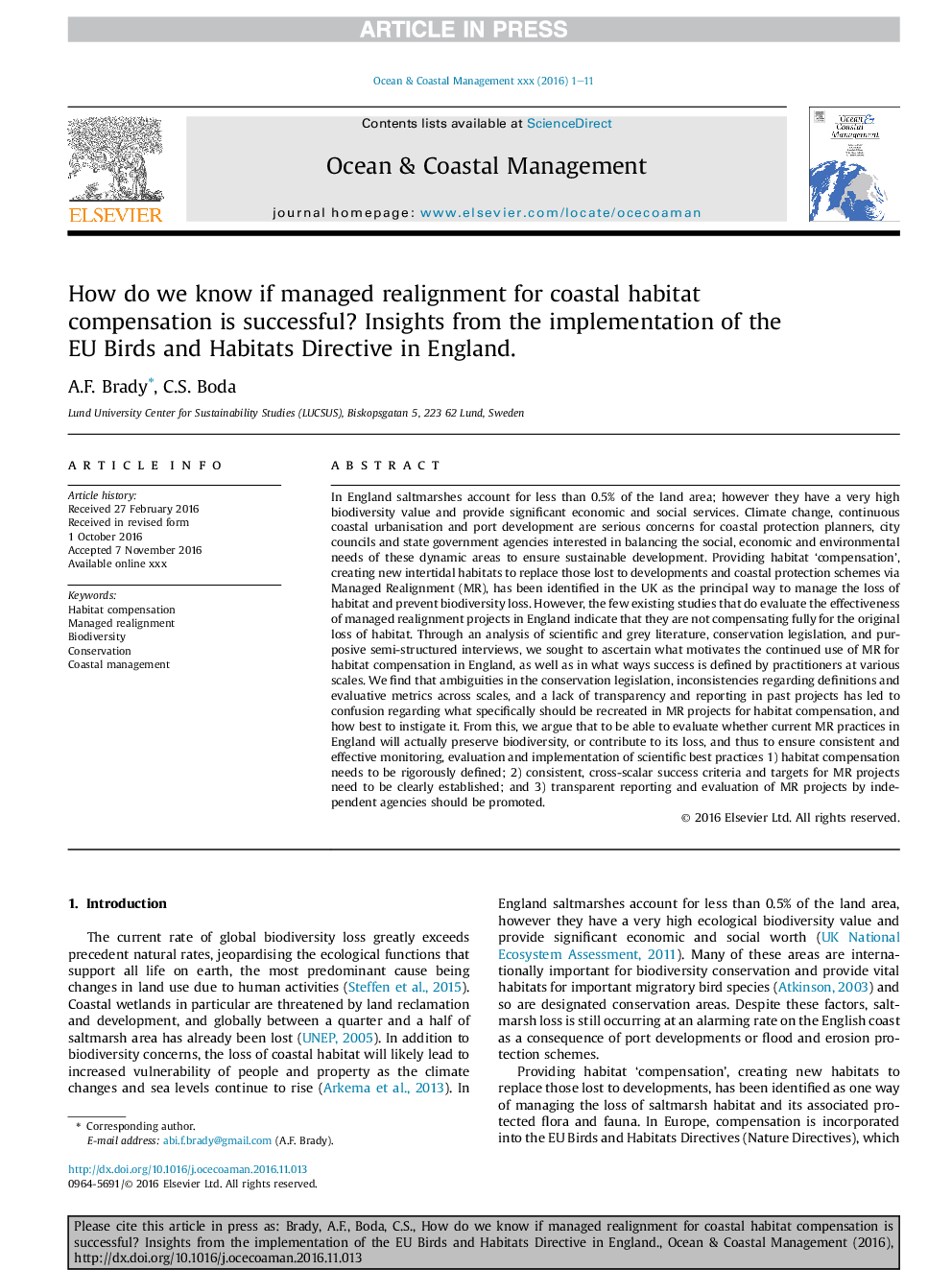| کد مقاله | کد نشریه | سال انتشار | مقاله انگلیسی | نسخه تمام متن |
|---|---|---|---|---|
| 5473786 | 1520486 | 2017 | 11 صفحه PDF | دانلود رایگان |
عنوان انگلیسی مقاله ISI
How do we know if managed realignment for coastal habitat compensation is successful? Insights from the implementation of the EU Birds and Habitats Directive in England.
ترجمه فارسی عنوان
چگونه می توانیم بدانیم که آیا اداره مجدد مدیریت برای جبران زیستگاه ساحلی موفق است؟ بینش از اجرای دستورالعمل اتحادیه پرندگان و زیستگاه های اتحادیه اروپا در انگلستان.
دانلود مقاله + سفارش ترجمه
دانلود مقاله ISI انگلیسی
رایگان برای ایرانیان
کلمات کلیدی
جبران خسارت تعدیل مدیریت تنوع زیستی، حفاظت، مدیریت ساحلی،
موضوعات مرتبط
مهندسی و علوم پایه
علوم زمین و سیارات
اقیانوس شناسی
چکیده انگلیسی
In England saltmarshes account for less than 0.5% of the land area; however they have a very high biodiversity value and provide significant economic and social services. Climate change, continuous coastal urbanisation and port development are serious concerns for coastal protection planners, city councils and state government agencies interested in balancing the social, economic and environmental needs of these dynamic areas to ensure sustainable development. Providing habitat 'compensation', creating new intertidal habitats to replace those lost to developments and coastal protection schemes via Managed Realignment (MR), has been identified in the UK as the principal way to manage the loss of habitat and prevent biodiversity loss. However, the few existing studies that do evaluate the effectiveness of managed realignment projects in England indicate that they are not compensating fully for the original loss of habitat. Through an analysis of scientific and grey literature, conservation legislation, and purposive semi-structured interviews, we sought to ascertain what motivates the continued use of MR for habitat compensation in England, as well as in what ways success is defined by practitioners at various scales. We find that ambiguities in the conservation legislation, inconsistencies regarding definitions and evaluative metrics across scales, and a lack of transparency and reporting in past projects has led to confusion regarding what specifically should be recreated in MR projects for habitat compensation, and how best to instigate it. From this, we argue that to be able to evaluate whether current MR practices in England will actually preserve biodiversity, or contribute to its loss, and thus to ensure consistent and effective monitoring, evaluation and implementation of scientific best practices 1) habitat compensation needs to be rigorously defined; 2) consistent, cross-scalar success criteria and targets for MR projects need to be clearly established; and 3) transparent reporting and evaluation of MR projects by independent agencies should be promoted.
ناشر
Database: Elsevier - ScienceDirect (ساینس دایرکت)
Journal: Ocean & Coastal Management - Volume 143, 1 July 2017, Pages 164-174
Journal: Ocean & Coastal Management - Volume 143, 1 July 2017, Pages 164-174
نویسندگان
A.F. Brady, C.S. Boda,
